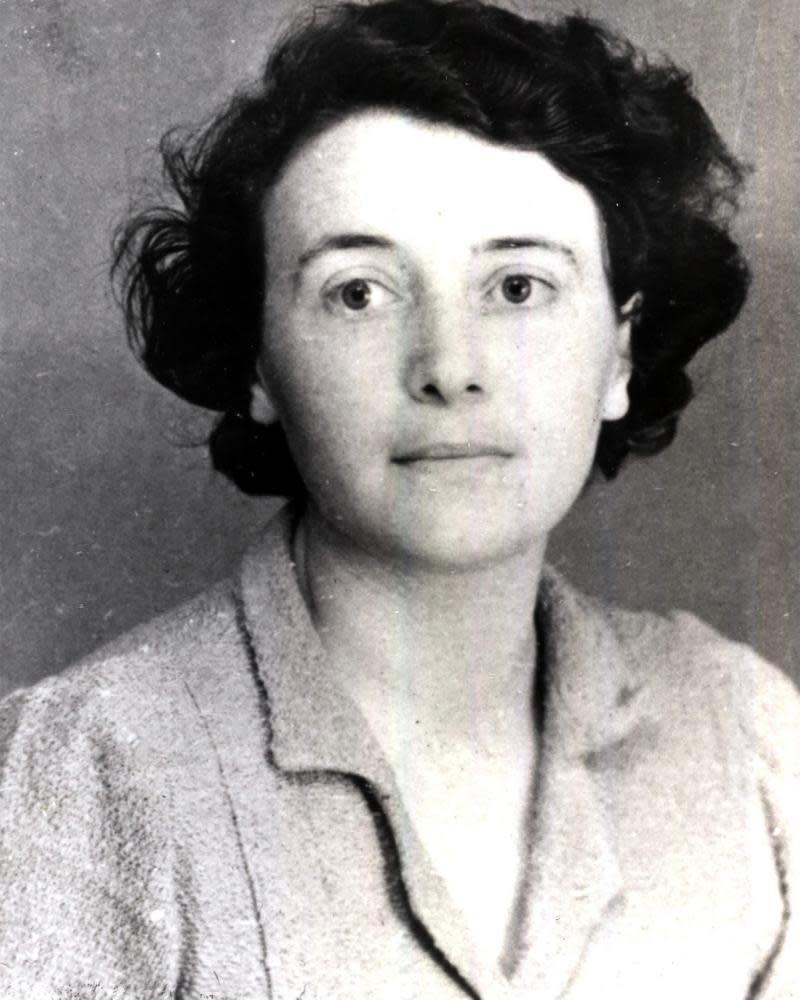George Orwell: how romantic walks with girlfriends inspired Nineteen Eighty-Four

Details from 50 newly released letters echo scenes between Winston and Julia in the dystopian novel
The feeling of longing for a lost love can be powerful, and George Orwell makes full use of it in his work. In Nineteen Eighty-Four, his great dystopian novel, the hero Winston Smith’s memories of walks taken with Julia, the woman he can never have, give the story its humanity.
Now a stash of largely unseen private correspondence, handed over to an academic archive on Friday by the author’s son, reveal just how large a role romantic nostalgia played in Orwell’s own life. The contents are also proof that the writer was an unlikely but enthusiastic ice-skater.
The 50 recently discovered letters were sent to two former girlfriends and show that Orwell, whose real name was Eric Blair, kept up a close and sentimental connection with both women, despite his two marriages, until the end of his life in 1950. The fact that these former lovers, Eleanor Jaques and Brenda Salkeld, had previously turned down his proposals of marriage seems only to have increased the hold they had on his imagination.
“I knew he liked his ladies very much, and it is so distant now that I do not mind,” Orwell’s adopted son, Richard Blair, told the Observer, adding that he believes the letters indicate his father was “sweeter on Brenda than on Eleanor”. “He wanted a bit of an open marriage with my mother Eileen, but she put her foot down.”
Blair has now handed over the letters to the Orwell Archive at University College London, having bought them from the families of the two women shortly after their rediscovery. He had earlier promised to make them available for study.
“This is gold dust for a biographer,” said DJ Taylor, the writer and Orwell expert, this weekend. “The letters give a new understanding of the longevity and the intensity of these relationships. He clearly couldn’t get them out of his mind.”
Taylor is currently writing his second study of Orwell’s life, in the light of fresh information. It is due out in 2023, and he has also drawn on the uncovered letters, to which the biographer had been given early access.
“They reveal his elegiac side,” said Taylor. “Orwell writes so much about country walks in his novels, and he was always trying to arrange walks in Suffolk with these women.
“He had met them in Southwold when he was staying with his parents in the early 1930s. Brenda was the sports mistress at a nearby school and Eleanor’s father was the dentist. She went on to marry his best friend in the village, Dennis Collings. It was a small world, and the letters often ask ‘Can I visit? Don’t let anybody know.’ ”
Taylor points out that Orwell wrote almost identical letters to Salkeld and Jaques when he moved to London: “He wrote about what it was like working in a bookshop while he wrote Keep the Aspidistra Flying.
“We now know that he was in touch with both women for much longer than we thought, and I have a strong suspicion his letters to Eleanor reminiscing about their country walks inspired similar passages describing Winston’s affair with Julia in Nineteen Eighty-Four.”

The bulk of the letters have not been seen before, and 18 of those sent to Jaques first came to light a decade ago in a shed, inside an envelope in a handbag. The letters to Salkeld surfaced in 2018, after her niece spoke at a public event attended by Blair and Taylor. “It is the kind of thing you always hope might happen at an event,” said Taylor.
In one previously disclosed letter to Salkeld, written four years into Orwell’s marriage to Eileen O’Shaughnessy, Orwell wrote: “It’s a pity … we never made love properly. We could have been so happy. If things are really collapsing I shall try and see you. Or perhaps you wouldn’t want to?”
Orwell also wrote to Salkeld from his bed in University College Hospital, London, sending his last letter four months before his death, as he was about to marry his second wife, Sonia Brownell.
“I am not divulging much more about the content yet,” said Blair. “But it does not mean to say he was not in love with Eileen, just that he cast his eye about and liked to talk to intelligent women; women who had something to say.
“People think everything has been uncovered, but we knew there was more out there. When these letters came to light, the families were all conscious they should not be auctioned off and disappear into the ether. That is why I stepped in. Both the women’s relatives are quite content with what I have done.”
Blair hopes the archive will be digitised so that scholars will have access not just to detail of the overlapping romances but also to evidence of his father’s other interests during the 1930s. The letters include stick drawings of Orwell ice-skating, fishing and working in Billingsgate Market.
Taylor adds that the correspondence fills in gaps in Orwell’s highly “compartmentalised life” in the 1930s. “Not least that one of his great hobbies was ice-skating. As soon as winter came around, he would get his skates up from Southwold and head for Streatham ice rink.”
The letters were presented to the UCL archive ahead of the annual Orwell Memorial Lecture, delivered on Friday by the novelist Ian McEwan.

 Yahoo Finance
Yahoo Finance 